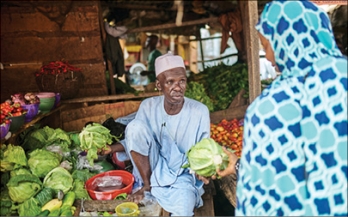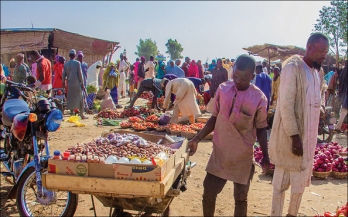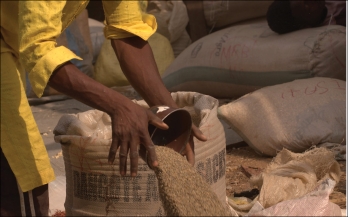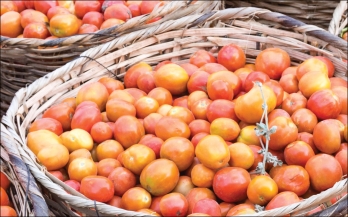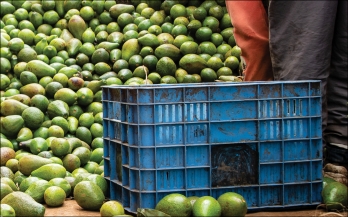Global Alliance for Improved Nutrition (GAIN) - 06/03/2023
As part of EatSafe's effort to evaluate the impacts of food safety behavior change interventions, this report summarized food safety behaviors and behavior drivers across four food safety macro-indices, assessed via structured surveys of vendors and consumers in Nigeria.
Global Alliance for Improved Nutrition (GAIN) - 04/10/2023
Nigeria’s plan for the transformation of its food systems, presented after the landmark 2021 United Nations Food Systems Summit, is proof of its strong political dedication to implementing impactful changes in the country’s food systems.
Global Alliance for Improved Nutrition (GAIN) - 18/08/2023
In this paper, EatSafe examines the process of “making a market” through a case study of vendors and consumers, using in-depth interviews, in Birnin Kebbi, Nigeria. Results demonstrate that market transactions are influenced by a complex interaction of vendors’ norms on competition and collaboration, consumers’ needs for credit amid unpredictable prices and restrictive gender norms, and a “moral economy” that appears to guide market actors’ behavior.
Stella Nordhagen, Nwando Onuigbo-Chatta, Elisabetta Lambertini, Augustine Okoruwa - 14/06/2023
EatSafe interviewed producers, processors, transporters, storage providers, and wholesalers of six food commodities to understand perceptions and actions related to food safety hazards across Nigerian food supply chains.
Global Alliance for Improved Nutrition (GAIN) - 21/06/2023
The Commercialisation for Biofortified Crops (CBC) project was launched by GAIN and HarvestPlus in 2020 with an overall goal to reach at least 167 million consumers with nutrient-dense biofortified foods (previously piloted by HarvestPlus) by 2022 in six countries in Africa (Nigeria, Kenya, and Tanzania) and Asia (India, Bangladesh, and Pakistan), through commercial pathways.
Federal University of Agriculture, Abeokuta, Global Alliance for Improved Nutrition (GAIN) - 21/06/2022
This paper, published in Advances in Nutrition & Food Science, explores the moisture adsorption behavior of dried tomato slices purchased from a food market in Abeokuta, Ogun State, Nigeria.
Global Alliance for Improved Nutrition (GAIN) - 10/08/2022
In Nigeria, packaging of fresh fruits and vegetables especially tomatoes is mostly done using traditional woven baskets from palm fronds. This study assessed the potential impact of replacing these woven baskets with plastic crates.
Global Alliance for Improved Nutrition (GAIN), International Livestock Research Institute (ILRI) - 15/12/2021
EatSafe collected samples of seven nutritious commodities to assess the relative exposure and risk of foodborne illness from consuming products commonly sold in traditional food markets in northwestern Nigeria.
Marijike Hummel, Christina Nyhus Dhillon, Adejoke Adewusi, Abass Babatunde Yusuf, Adeyinka Onabolu - 09/01/2023
As elaborated in a GAIN evidence brief, poor-quality diets and insufficient food quantity are linked to reduced work capacity. This suggests that the malnutrition burden can be partly addressed through a win-win-win approach which improves individual lives, business outcomes, and national economies.
Eva C. Monterrosa, Joseph Dalley, Prithika Mohan, Warimu Muthike, Augustine Okoruwa, Teale Yalch, Stella Nordhagen - 05/12/2022
This GAIN working paper describes the process used by EatSafe in Nigeria to identify and design innovative interventions to improve the safety of nutritious foods in traditional food markets.
